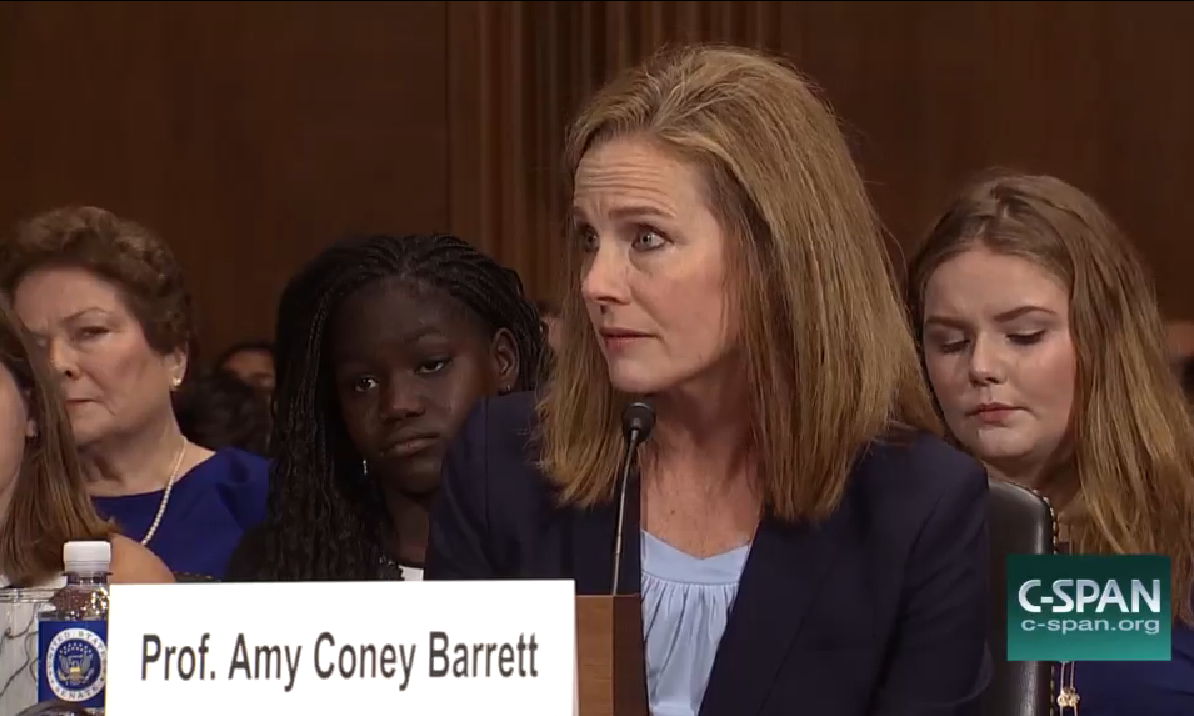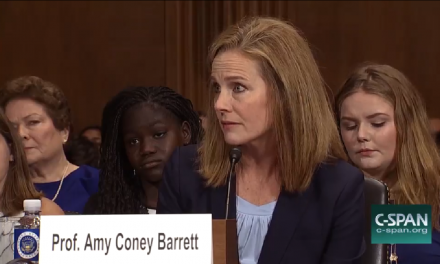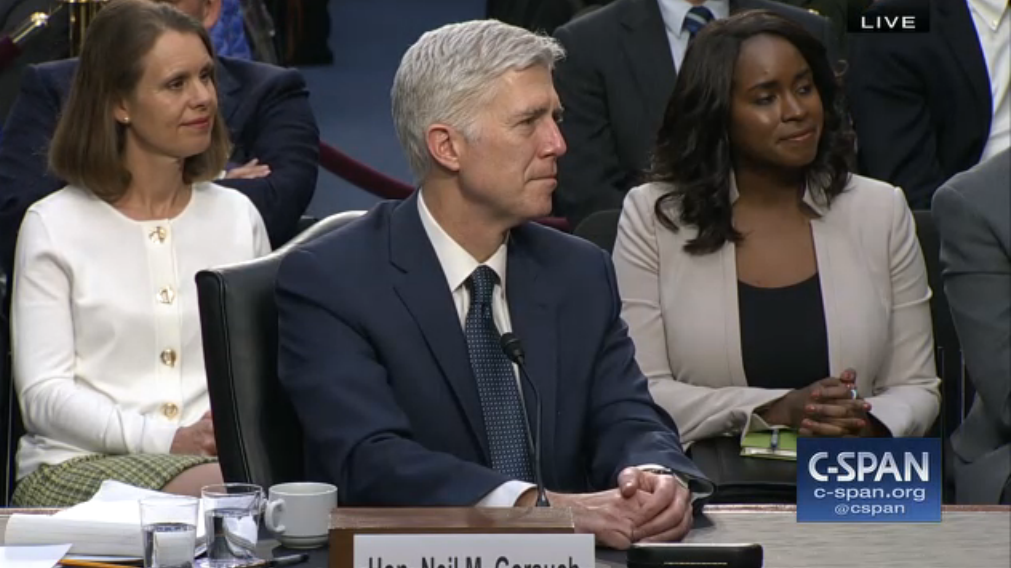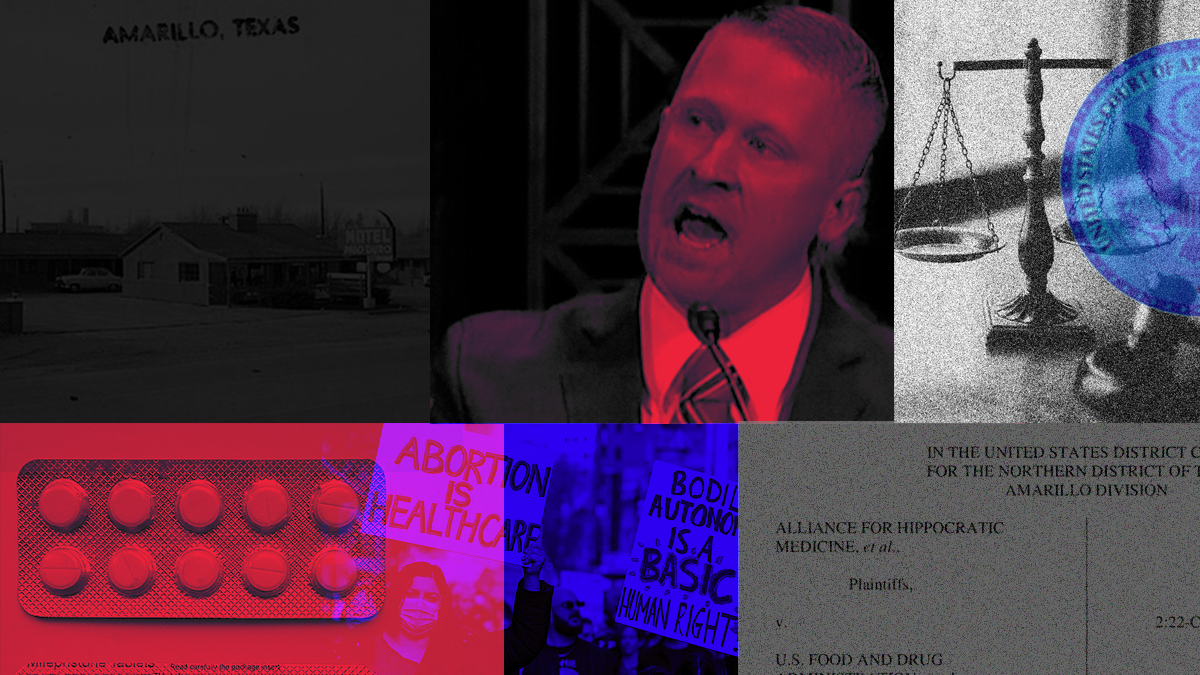Five Things You Should Know About 7th Circuit Nominee Amy Coney Barrett

 President Trump nominated Amy Coney Barrett, a professor at Notre Dame Law School, to an Indiana seat on the U.S. Court of Appeals for the Seventh Circuit. President Obama had nominated Myra Selby to this seat in 2016, but her nomination was blocked, and she never even received a hearing. Barrett’s hearing before the Senate Judiciary Committee was held yesterday – in an unusual and ill-advised move, along with three other judicial nominees and the nominee to head the Civil Rights Division at the Department of Justice.
President Trump nominated Amy Coney Barrett, a professor at Notre Dame Law School, to an Indiana seat on the U.S. Court of Appeals for the Seventh Circuit. President Obama had nominated Myra Selby to this seat in 2016, but her nomination was blocked, and she never even received a hearing. Barrett’s hearing before the Senate Judiciary Committee was held yesterday – in an unusual and ill-advised move, along with three other judicial nominees and the nominee to head the Civil Rights Division at the Department of Justice.
Here are five things you should know about Amy Coney Barrett’s record:
- Her writings reflect an originalist approach to the Constitution. This means that she would seek to interpret the Constitution according to its “original public meaning” – which, in Barrett’s own words, arguably calls into question the constitutionality of the Fourteenth Amendment, the validity of Brown v. Bd. Of Ed., and the use of paper money. This approach could have serious implications for how Barrett, who served as a law clerk for the late Justice Antonin Scalia, would rule in cases involving civil rights and reproductive rights, among other issues.
- She rejected the idea that Catholic judges should decide legal issues contrary to the church’s moral teachings. Barrett co-wrote an article that quoted Justice Brennan as saying that in his judicial role, he would abide by his oath to follow the Constitution and laws of the United States and that no “obligation of our faith” would be superior to that. Barrett and her co-author responded, “We do not defend this position as the proper response for a Catholic judge to take with respect to abortion or the death penalty.” (At her hearing, Barrett stated that the views in this article were really her co-author’s, and that she believes that it is never permissible to follow personal convictions rather than the law.)
- Barrett wrote that, in her view, it is legitimate for Justices to overturn precedents that they think conflict with their interpretation of the Constitution.
- Barrett explicitly questioned the precedential force of Roe v. Wade and its progeny, asserting in an article that the “public response to controversial cases like Roe reflects public rejection of the proposition that stare decisis can declare a permanent victor in a divisive constitutional struggle.” While Barrett stated at her hearing that she would follow Supreme Court precedent, including Roe, if confirmed, it is difficult to square her testimony with the concern about whether she would give full effect to Roe and other critical precedents raised by her writings.
- Barrett signed a letter criticizing the birth control benefit under the Affordable Care Act as a “grave infringement on religious liberty.” The benefit ensures that women have access to insurance coverage that includes birth control. The Obama Administration created an accommodation for certain employers with religious objections to birth control, which allows them to opt out of the benefit while still guaranteeing that employees receive birth control coverage through their regular insurance plan. The letter Barrett signed was written by the Becket Fund, one of the primary organizations behind numerous legal challenges to the benefit and the accommodation. The letter deliberately mischaracterizes the accommodation and calls it a “grave infringement on religious liberty.” This is an extreme position, one that eight of nine circuit courts have rejected. If her legal position wasn’t troubling enough, Barrett’s signature on this letter also raises serious concerns about her ability to rule impartially, if confirmed, on such matters. This is not just hypothetical – these cases are still pending in circuit courts across the country, including in the Seventh Circuit. Her testimony at the hearing, in which she stated that she could not think of a case or category of issues regarding which she would need to recuse herself on the basis of her conscience, if confirmed, only heightens this concern.
Barrett sought to distance herself from these, and other aspects of her record, and assured the Senate Judiciary Committee that she would follow Supreme Court precedent and uphold the law. The question for Senators on the Committee is whether they will choose to believe what her record demonstrates consistently throughout her career, or what she said as a nominee yesterday.




